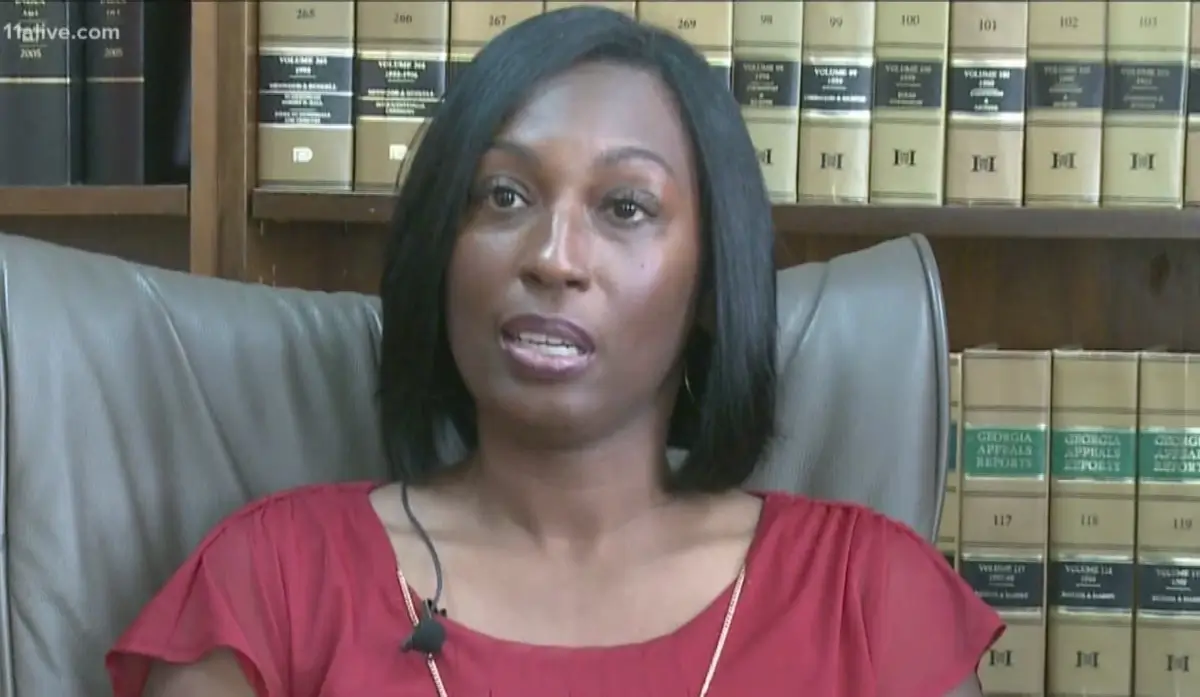‘So Much Trauma’: FBI Agents Raided the Wrong House, Pointing Guns at Terrified 7-Year-Old Black Boy and His Family, But Court Says Qualified Immunity Protects Agency Against Legal Action
A Georgia couple is still seeking justice nearly seven years after the FBI mistakenly raided their home when agents showed up at the wrong address.
Curtrina Martin and her then-fiancé, Hilliard Toi Cliatt, were unintended victims of the raid at their Atlanta home in 2017, but their quest for accountability has been complicated by qualified immunity protections, which shield government officials from being held liable for mistakes during official duties.
Martin’s 7-year-old son was home at the time of the terrifying mix-up.
Despite Martin’s attempts to seek justice, an April ruling by the 11th Circuit Court of Appeals found that FBI Special Agent Lawrence Guerra, who led the raid, did not violate the Constitution, even though the operation targeted the wrong house.
The house the agents were actually looking for was approximately one block away.
Martin and Cliatt sued, but the court found that Guerra had taken reasonable steps to prepare for the raid, and that his actions were appropriate given the similarities between the homes and the poor visibility at the time.
The lawsuit was refiled but it remains snared the legal system, while the government has not been required to pay any damages for the family’s trauma and continuing legal struggles.
Martin and Cliatt also sued under the Federal Tort Claims Act, which allows people to sue the federal government for certain harms. However, their case was blocked because the FBI’s actions were considered discretionary and thus protected. Additionally, the court ruled that the FBI is shielded by the Supremacy Clause of the U.S. Constitution. The court, citing language from an earlier ruling, said, “The inquiry that determines if the Supremacy Clause bars state-law liability is whether a federal official’s acts ‘have some nexus with furthering federal policy and can reasonably be characterized as complying with the full range of [the Fourth Amendment].’”
The ruling echoes past cases where similar lawsuits were dismissed due to qualified immunity. For instance, Karen Jimerson and James Parks faced a SWAT raid at their home despite no suspicion of crime, and their suit was dismissed.
Many insurance policies exclude damage caused by government actions, as some victims have discovered. Fortunately, Cliatt’s insurance covered the damage, and the FBI later reimbursed the company. However, Martin views this reimbursement as a small consolation.
“It’s much more than physical damage,” she told Reason magazine. “It’s also mental. I had to take off work for almost a year. So putting myself and my son through therapy at the time, it took a big strain financially on me….My son at the time experienced so much trauma, and having to put him through therapy and just the anxiety and fear that he experienced from that, that’s enough to want to say, ‘Hey, there should be some justice done in this situation.’”
Martin’s attorney, Patrick Jaicomo of the Institute for Justice, shares this sentiment.
“If someone asked me why a lawsuit is necessary to challenge a wrong-house raid, even though insurance or another source has paid to repair the property damage, I would ask them to put themselves in my clients’ shoes. Which costs would you rather shoulder?” he said to Reason. “A new handrailing and a broken door or the permanent image of your seven-year-old cowering under his sheets as scary, angry men shouted and pointed guns at him in his bed, while you’re terrified, confused, and helplessly pinned down in your room wearing nothing but a t-shirt? My clients have lost sleep, jobs, trust, and a basic sense of security in their own home because the FBI couldn’t be bothered to check an address before leading a pre-dawn military-style raid in a residential neighborhood.”
They plan to ask the Supreme Court to hear their appeal soon.
Qualified immunity, established by the Supreme Court in the 1967 case of Pierson v. Ray, shields police officers and other officials from lawsuits arising from their official actions, even when those actions result in serious harm or loss for individuals.
However, this legal doctrine has faced mounting criticism in recent years, with appellate courts increasingly ruling in favor of plaintiffs, signaling a slight shift in how qualified immunity is applied in different cases.
Generally, the legal doctrine that protects public officials unless their actions violate clearly established law. It shields officials from civil lawsuits unless their conduct violates a “clearly established” statutory or constitutional right of which a reasonable person would have known.
Back in April, the Fifth Circuit cited qualified immunity when it dismissed a lawsuit by a Black mother in the Dallas area who claimed she was mistakenly targeted during a no-knock raid at the wrong house five years ago.

